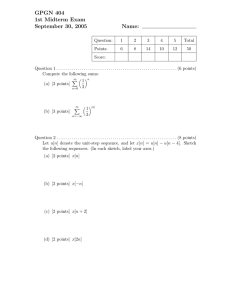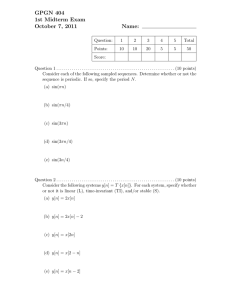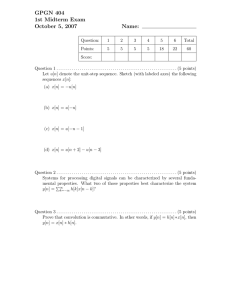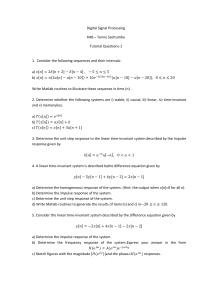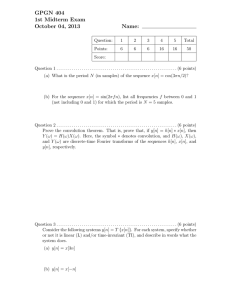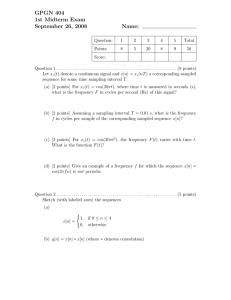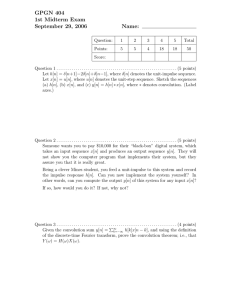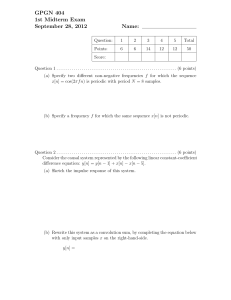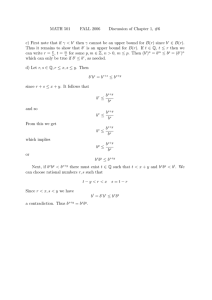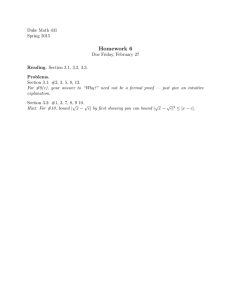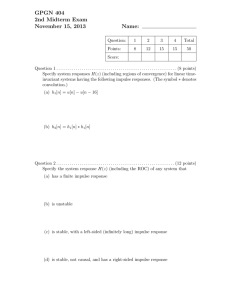GPGN 404 1st Midterm Exam October 1, 2010 Name:
advertisement
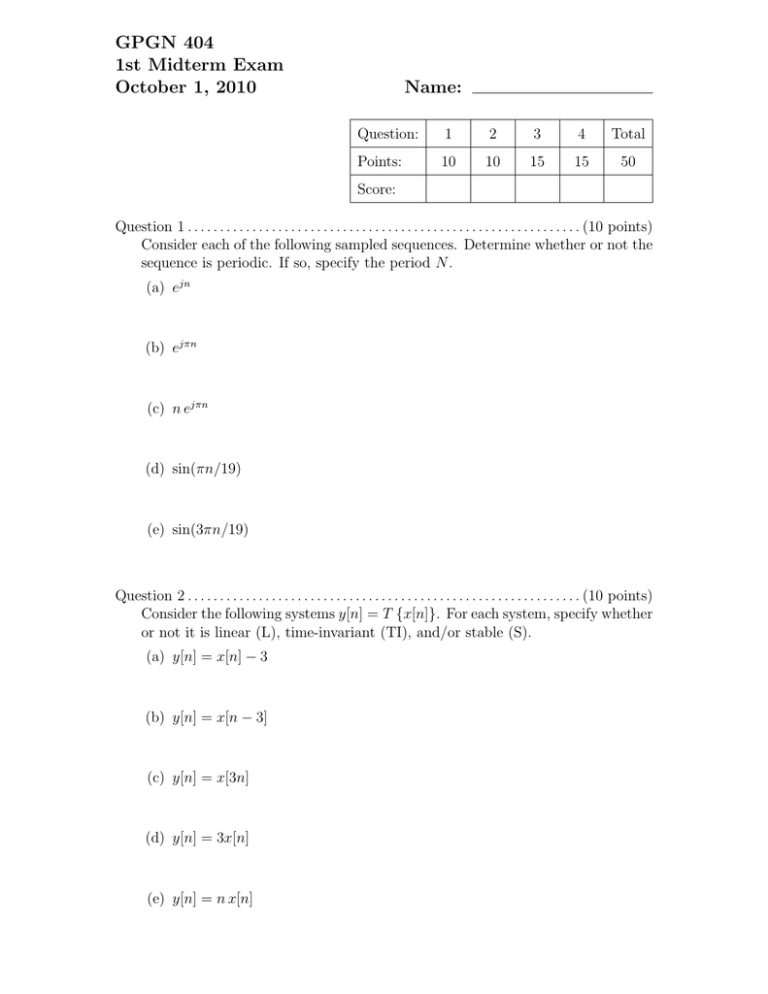
GPGN 404
1st Midterm Exam
October 1, 2010
Name:
Question:
1
2
3
4
Total
Points:
10
10
15
15
50
Score:
Question 1 . . . . . . . . . . . . . . . . . . . . . . . . . . . . . . . . . . . . . . . . . . . . . . . . . . . . . . . . . . . . . (10 points)
Consider each of the following sampled sequences. Determine whether or not the
sequence is periodic. If so, specify the period N .
(a) ejn
(b) ejπn
(c) n ejπn
(d) sin(πn/19)
(e) sin(3πn/19)
Question 2 . . . . . . . . . . . . . . . . . . . . . . . . . . . . . . . . . . . . . . . . . . . . . . . . . . . . . . . . . . . . . (10 points)
Consider the following systems y[n] = T {x[n]}. For each system, specify whether
or not it is linear (L), time-invariant (TI), and/or stable (S).
(a) y[n] = x[n] − 3
(b) y[n] = x[n − 3]
(c) y[n] = x[3n]
(d) y[n] = 3x[n]
(e) y[n] = n x[n]
Question 3 . . . . . . . . . . . . . . . . . . . . . . . . . . . . . . . . . . . . . . . . . . . . . . . . . . . . . . . . . . . . . (15 points)
Consider a linear time-invariant system with impulse response
h[n] = δ[n − 1] + 2δ[n] + δ[n + 1].
(a) Sketch the impulse response h[n] for this system.
(b) Express the output y[n] of this system in terms of the input x[n].
(c) For the input x[n] = u[n] (the unit-step sequence), sketch the output y[n].
(d) What is the real-valued (no complex values) frequency response H(ω) of
this system?
(e) Is this system stable? If so, express the bound By on the output in terms
of the bound Bx on the input. If not, why not?
(f) How could you modify this system so that the DC (zero-frequency) response
H(0) = 1, while preserving the shape of its impulse response h[n]?
Question 4 . . . . . . . . . . . . . . . . . . . . . . . . . . . . . . . . . . . . . . . . . . . . . . . . . . . . . . . . . . . . . (15 points)
Consider a causal linear time-invariant system with frequency response
H(ω) = 2
1 − e−jω
.
1 + e−jω
(a) Write simple expressions for H(− π2 ), H(0), and H( π2 ).
(b) For the input x[n] = cos( π2 n), what is the output y[n]? Your answer should
be a real-valued sequence (one with no complex values).
(c) Write the linear constant-coefficient difference equation that represents this
system.
(d) Sketch the impulse response h[n] for this system.
(e) Is this system stable? If so, express the bound By on the output in terms
of the bound Bx on the input. If not, why not?
(f) Write a computer program fragment that computes the output sequence
y[n] from an input sequence x[n] for n = 0, 1, ..., nt-1.
